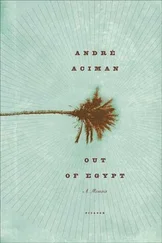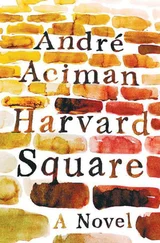André Aciman - Call Me by Your Name
Здесь есть возможность читать онлайн «André Aciman - Call Me by Your Name» весь текст электронной книги совершенно бесплатно (целиком полную версию без сокращений). В некоторых случаях можно слушать аудио, скачать через торрент в формате fb2 и присутствует краткое содержание. Год выпуска: 2007, Издательство: Farrar, Straus and Giroux, Жанр: Современная проза, на английском языке. Описание произведения, (предисловие) а так же отзывы посетителей доступны на портале библиотеки ЛибКат.
- Название:Call Me by Your Name
- Автор:
- Издательство:Farrar, Straus and Giroux
- Жанр:
- Год:2007
- ISBN:нет данных
- Рейтинг книги:5 / 5. Голосов: 6
-
Избранное:Добавить в избранное
- Отзывы:
-
Ваша оценка:
- 100
- 1
- 2
- 3
- 4
- 5
Call Me by Your Name: краткое содержание, описание и аннотация
Предлагаем к чтению аннотацию, описание, краткое содержание или предисловие (зависит от того, что написал сам автор книги «Call Me by Your Name»). Если вы не нашли необходимую информацию о книге — напишите в комментариях, мы постараемся отыскать её.
is clear-eyed, bare-knuckled, and ultimately unforgettable.
Call Me by Your Name — читать онлайн бесплатно полную книгу (весь текст) целиком
Ниже представлен текст книги, разбитый по страницам. Система сохранения места последней прочитанной страницы, позволяет с удобством читать онлайн бесплатно книгу «Call Me by Your Name», без необходимости каждый раз заново искать на чём Вы остановились. Поставьте закладку, и сможете в любой момент перейти на страницу, на которой закончили чтение.
Интервал:
Закладка:
“She knew she had caught me yet once more and started to giggle in earnest.
“Will you watch my purse? she asked. She must have sensed that if she hadn’t asked me to watch something of hers, I would probably have paid the bill and left the bar.
“This, in a nutshell, is what I call the San Clemente Syndrome.”
There was applause, and it was affectionate applause. We not only liked the story but the man telling the story.
“Evviva il sindromo di San Clemente,” said Straordinario-fantastico.
“ Sindromo is not masculine, it’s feminine, la sindrome ,” corrected someone sitting next to her.
“Evviva la sindrome di San Clemente,” hailed someone who was clearly aching to shout something. He, along with a few others, had arrived very late for dinner, crying in good Roman dialect Lassatece passà , let us through, to the restaurant owners as a way of announcing his arrival to the company. Everyone had long since started eating. His car had taken a wrong turn around Ponte Milvio. Then he couldn’t find the restaurant, etc. As a result he missed the first two courses. He was now sitting at the very end of the table and he as well as those he had brought with him from the bookstore had been given the last of the cheeses remaining in the house. This plus two flans for each, because this was all that was left. He made up for the missing food with too much wine. He had heard most of the poet’s speech on San Clemente.
“I think that all this clementizing ,” he said, “is quite charming, though I’ve no idea how your metaphor will help us see who we are, what we want, where we’re headed, any more than the wine we’ve been drinking. But if the job of poetry, like that of wine, is to help us see double, then I propose another toast until we’ve drunk enough to see the world with four eyes — and, if we’re not careful, with eight.”
“Evviva!” interrupted Amanda, toasting to the latecomer, in a desperate effort to shut him up.
“Evviva!” everyone else toasted.
“Better write another book of poems — and soon,” said Straordinario-fantastico.
Someone suggested an ice cream place not far from the restaurant. No, skip the ice cream, let’s go for coffee. We all massed into cars and headed along the Lungotevere, toward the Pantheon.
In the car, I was happy. But I kept thinking of the basilica and how similar to our evening, one thing leading to the next, to the next, to something totally unforeseen, and just when you thought the cycle had ended, something new cropped up and after it something else as well, until you realized you could easily be back where you started, in the center of old Rome. A day ago we had gone swimming by the light of the moon. Now we were here. In a few days he’d be gone. If only he’d be back exactly a year from now. I slipped my arm around Oliver’s and leaned against Ada. I fell asleep.
It was well past one in the morning when the party arrived at Caffè Sant’Eustachio. We ordered coffees for everyone. I thought I understood why everyone swears by Sant’Eustachio’s coffee; or perhaps I wanted to think I understood, but I wasn’t sure. I wasn’t even sure I liked it. Perhaps no one else did but felt obliged to fall in with the general opinion and claimed that they too couldn’t live without it. There was a large crowd of coffee drinkers standing and sitting around the famed Roman coffeehouse. I loved watching all these lightly dressed people standing so close to me, all of them sharing the same basic thing: love for the night, love for the city, love for its people, and an ardent desire to couple — with anyone. Love for anything that would prevent the tiny groups of people who had come together here from disbanding. After coffee, when the group considered separating, someone said, “No, we can’t say goodbye yet.” Someone suggested a pub nearby. Best beer in Rome. Why not? So we headed down a long and narrow side alley leading in the direction of Campo de’ Fiori. Lucia walked between me and the poet. Oliver, talking with two of the sisters, was behind us. The old man had made friends with Straordinario-fantastico and they were both confabulating about San Clemente. “What a metaphor for life!” said Straordinario-fantastico. “Please! No need to overdo things either with clementification this and clementization that. It was just a figure of speech, you know,” said Falstaff, who probably had had his fill of his godson’s glory for the night. Noticing that Ada was walking by herself, I walked back and held her by the hand. She was dressed in white and her tanned skin had a sheen that made me want to touch every pore in her body. We did not speak. I could hear her high heels tapping the slate pavement. In the dark she seemed an apparition.
I wanted this walk never to end. The silent and deserted alley was altogether murky and its ancient, pockmarked cobblestones glistened in the damp air, as though an ancient carrier had spilled the viscous contents of his amphora before disappearing underground in the ancient city. Everyone had left Rome. And the emptied city, which had seen too many and seen them all, now belonged to us alone and to the poet who had cast it, if only for one night, in his own image. The mugginess was not going to break tonight. We could, if we wished, have walked in circles and no one would have known and none would have minded.
As we ambled down an emptied labyrinth of sparely lit streets, I began to wonder what all this talk of San Clemente had to do with us — how we move through time, how time moves through us, how we change and keep changing and come back to the same. One could even grow old and not learn a thing but this. That was the poet’s lesson, I presume. In a month or so from now, when I’d revisit Rome, being here tonight with Oliver would seem totally unreal, as though it had happened to an entirely different me. And the wish born three years ago here when an errand boy offered to take me to a cheap movie theater known for what went on there would seem no less unfulfilled to me three months from now than it was three years ago. He came. He left. Nothing else had changed. I had not changed. The world hadn’t changed. Yet nothing would be the same. All that remains is dreammaking and strange remembrance.
The bar was closing when we arrived. “We close at two.” “Well, we still have time for drinks.” Oliver wanted a martini, an American martini. What a beautiful idea, said the poet. “Me too,” chimed in someone else. On the large jukebox you could hear the same summer hit we’d heard during the entire month of July. On hearing the word “martini,” the old man and the publisher also dittoed the order. “Ehi! Taverniere!” shouted Falstaff. The waiter told us that we could either have wine or beer; the bartender had left earlier that evening, on account of because his mother was taken gravely ill to the hospital where she had to be taken. Everyone smothered a laugh at the waiter’s garbled speech. Oliver asked what they charged for martinis. The waiter yelled the question to the girl at the cash register. She told him how much. “Well, what if I make the drinks and you charge us your price on account of because we can mix the drinks we are mixing?”
There was hesitation on the part of the waiter and of the cashier. The owner had long since left. “Why not?” said the girl. “If you know how to make them, faccia pure , go right ahead.”
Round of applause for Oliver, who sauntered his way behind the bar and, in a matter of seconds, after adding ice to the gin and a bit of vermouth, was vigorously shaking the cocktail mixer. Olives couldn’t be found in the tiny refrigerator by the bar. The cashier came and checked and produced a bowl. “Olives,” she said, staring Oliver straight in the face, as if to mean, It was under your very nose — had you looked? And what else? “Maybe I could entice you to accept a martini from us,” he said. “This has been a crazy evening. A drink could not possibly make it any crazier. Make it a small one.”
Читать дальшеИнтервал:
Закладка:
Похожие книги на «Call Me by Your Name»
Представляем Вашему вниманию похожие книги на «Call Me by Your Name» списком для выбора. Мы отобрали схожую по названию и смыслу литературу в надежде предоставить читателям больше вариантов отыскать новые, интересные, ещё непрочитанные произведения.
Обсуждение, отзывы о книге «Call Me by Your Name» и просто собственные мнения читателей. Оставьте ваши комментарии, напишите, что Вы думаете о произведении, его смысле или главных героях. Укажите что конкретно понравилось, а что нет, и почему Вы так считаете.









